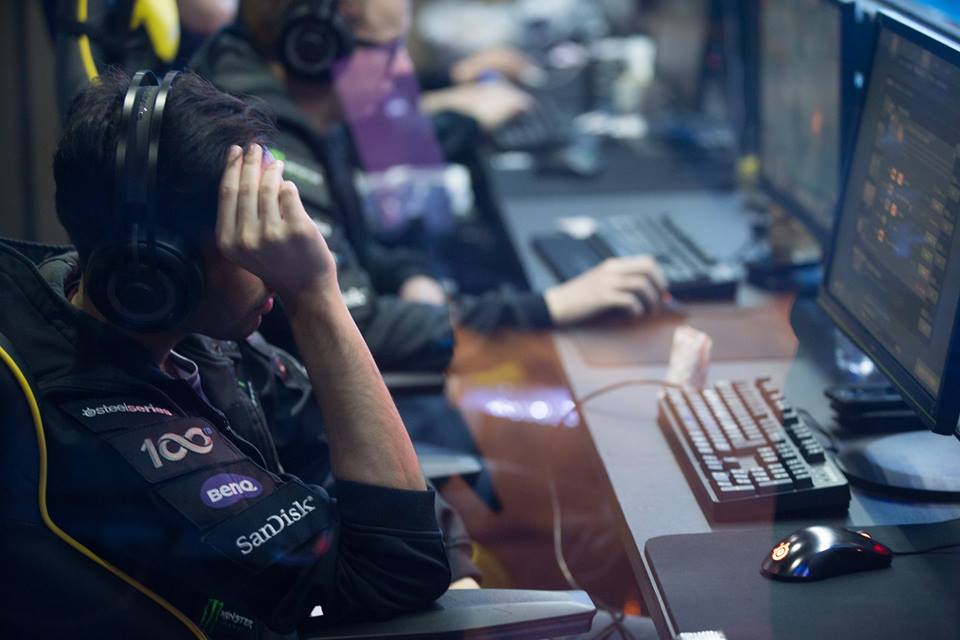Sports
Esports officially arrives in Japan, home of game giants

(Photo: Mars Media/Facebook)” width=”960″ height=”640″ />
FILE: Esports has officially arrived in Japan. (Photo: Mars Media/Facebook)CHIBA, Japan — A crowd cheers, banging on balloons, in front of glitzy stages, each with a giant screen. The rising stars at the sprawling Makuhari Messe hall are the quietly seated men in hoodies and T-shirts, with names like Noppi and Refresh, jiggling on buttons and grimacing at screens.
Esports has officially arrived in Japan.
Although Japan is home to video game giants like Nintendo Corp., Sony Corp. and Bandai Namco, massive game fans as well as individual star game players, it’s surprisingly behind the rest of the world in esports — professional game-playing recognized as a sport that’s vibrant in the U.S. and Europe.
But with talk that elite computer gaming may become an official Olympic sport, Japan is determined to catch up.
Esports has become a medal event at the 2022 Asian Games, a sign that mainstream recognition is growing. Global esports fans are estimated to number 500 million by 2020, according to game-market researcher Newzoo.
Japan Esports Union, or JESU, was launched Feb. 1 to promote esports, issue licenses to professional players in Japan, standardize rules and qualifications and support and nurture future players. The union has won the backing of Japan’s game software makers as well as technology companies, such as video-sharing niconico.
That means big money can be legally up for grabs at tournaments, expected to spring up here, with powerful sectors at work to make sure esports is booming in Japan.
Game Party Japan 2018, at Makuhari, in the Tokyo suburb of Chiba, began Saturday and continues through Sunday as the first esports event after JESU was set up. The biggest cash prize goes to the winner of mobile game Monster Strike at 8 million yen ($73,000).
One reason Japan fell behind the rest of the world in esports is that Japanese game fans tend to play solitary games, like role-playing games, in contrast to the contest-style games that thrive in esports in the rest of the world, said JESU Vice-President Hirokazu Hamamura.
But the appeal of watching esports is much like regular sports, such as soccer or baseball, Hamamura and other advocates say.
“It’s the story that is there,” he said.
Leopold Chung, an official with the International Esports Federation, or IeSF, which promotes esports, was at the weekend event to meet with JESU officials.
Chung said that anti-doping requirements, legal help with contracts and the protection of retired players are crucial. He believes esports holds potential for places like Africa because of the ability of digital technology to bring down borders.
“Because of the technology, our communities are connected,” he said.
Even esports believers acknowledge hurdles remain before “Call of Duty” can become as culturally mainstream as the 100-meter dash. Such violent games would be out at the Olympics, for one. And the Olympics’ non-profit banner may conflict with the commercial nature of video games, they say.
“It’s a great alternative for children rather than watching TV all the time,” said Chester King, chief executive of British Esports Association and eGames, who is leading the push for esports to become a legitimate sport
“It’s like chess. You never get a parent saying to a child ‘you’re playing too much chess,”’ he added, stressing that video games are good for mental fitness.
At the esports finals of “Street Fighter,” winner and star player Itabashi Zangief posed before cameras and received a trophy and cash prize, after smashing his opponent in a dazzling knockout on the screen.
“I played a good game, but I need to work harder,” he told the crowd.
Akihito Sato, a 28-year-old salesman, who was watching, said the appeal of esports is how quickly the satisfaction comes, unlike other spectator sports.
“When a match gets close, it’s so exciting to watch,” said Sato. “But it’s over in something like three minutes. It’s instant.”























